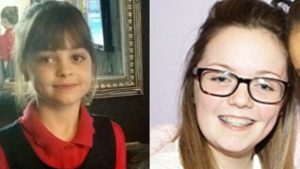 Twenty-two people, including an eight-year-old girl, have been killed and 59 injured in a suicide bombing at Manchester Arena, at the end of a concert by US singer Ariana Grande.
Twenty-two people, including an eight-year-old girl, have been killed and 59 injured in a suicide bombing at Manchester Arena, at the end of a concert by US singer Ariana Grande.
A man set off a homemade bomb in the foyer at 22:33 BST on Monday, in what Theresa May called a “sickening” act.
Armed police have arrested a 23-year-old man in Chorlton, south Manchester, in connection with the attack.
Saffie Rose Roussos was a pupil at Tarleton Primary School, in Lancashire.
Her headteacher Chris Upton said she had been “simply a beautiful little girl in every aspect of the word” and was “loved by everyone”.
Student Georgina Callander, believed to have been 18, has also been named as among the dead.
She had been studying health and social care at Runshaw College in Leyland, Lancashire.
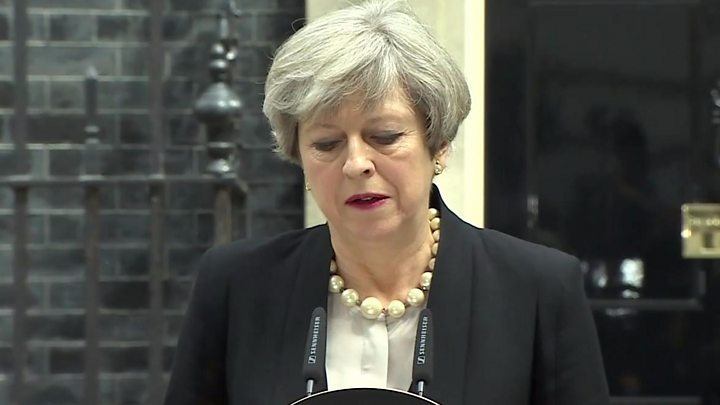
In a statement in Downing Street, the prime minister said it was “now beyond doubt that the people of Manchester and of this country have fallen victim to a callous terrorist attack” that targeted “defenceless young people”.
She said the security services believe they know the attacker’s identity but are not yet able to confirm it.
It is the worst terrorist attack in the UK since the 7 July bombings in 2005 in which 52 people were killed by four suicide bombers.
So-called Islamic State has said it was behind the attack, via IS channels on the messaging app Telegram.
Sixty ambulances went to Manchester Arena after the attack and the wounded are being treated at eight hospitals around the city. Among them are 12 children under the age of 16.
Relatives are using social media to hunt for missing loved ones, and an emergency number – 0800 096 0095 – has been set up.
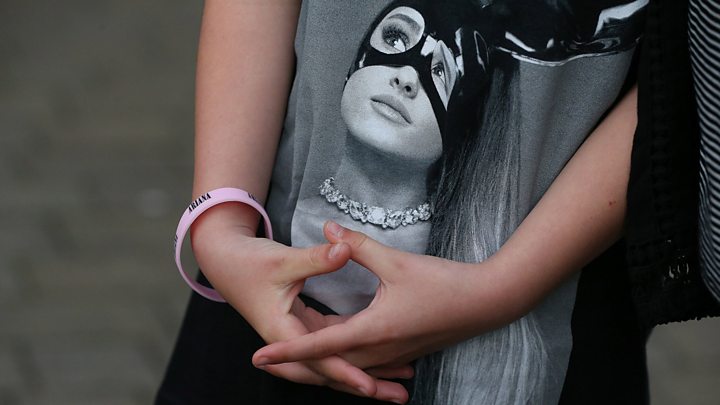
Witnesses at the arena described seeing metal nuts and bolts among the debris, and spoke about the fear and confusion that gripped concert-goers.
Andy Holey, who had gone to the arena to pick up his wife and daughter, said: “An explosion went off and it threw me about 30ft from one set of doors to the other set of doors.”
Emma Johnson, who went to pick up her children, aged 15 and 17, told BBC Radio Manchester: “The whole building shook. There was a blast and then a flash of fire afterwards. There were bodies everywhere.”
Teenager Abigail Walker, who was at the concert, told the BBC: “I had to make sure I had my sister. I grabbed hold of her and pulled hard. Everyone was running and crying.
“It was absolutely terrifying.”
Charlotte Campbell’s daughter Olivia is among those who have been missing since the concert.
“She’s only a 15-year-old girl, she’s out there on her own because her friend has been found,” she told the BBC.
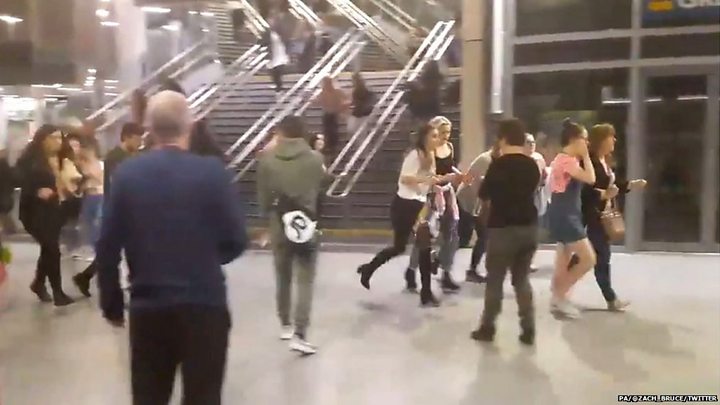
Analysis: Gordon Corera, BBC security correspondent
The UK threat level has been judged to be severe for nearly three years – which means an attack is considered highly likely.
But in recent months the tempo of counter terrorist activity has been increasing with – on average – an arrest every day.
After the attack in Westminster by Khalid Masood in March, police and security officials have been warning that further attacks were almost inevitable.
But they also believed that those were more likely to be low-tech involving knives or vehicles. The fact that the Manchester attack involved explosives will worry them.
It may not have been at the level of complexity seen in Paris in 2015, when multiple attackers sent from Syria used guns and suicide belts, but it will still have required planning.
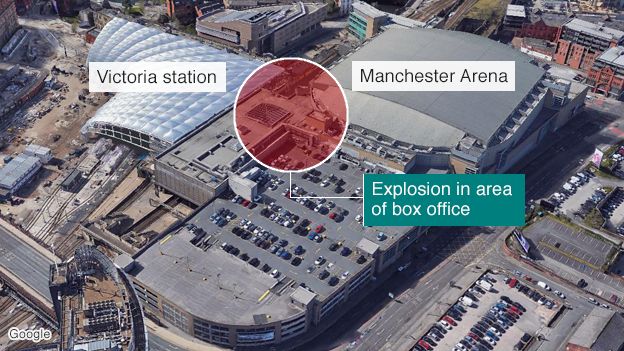
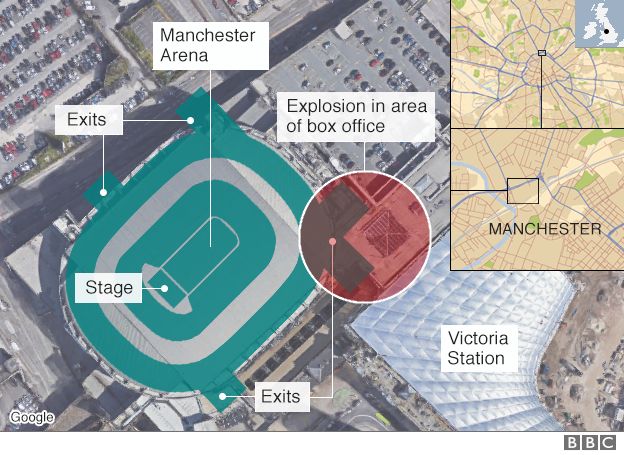
The blast happened close to the entrance to Victoria railway and tram station. The station has been closed and all trains cancelled.
Greater Manchester Mayor Andy Burnham said the city would “pull together”, adding: “That’s what we are. That’s what we do. They won’t win.”
The Manchester Arena or MEN is the city’s largest indoor venue with a concert capacity of about 21,000.
Courtesy: BBC

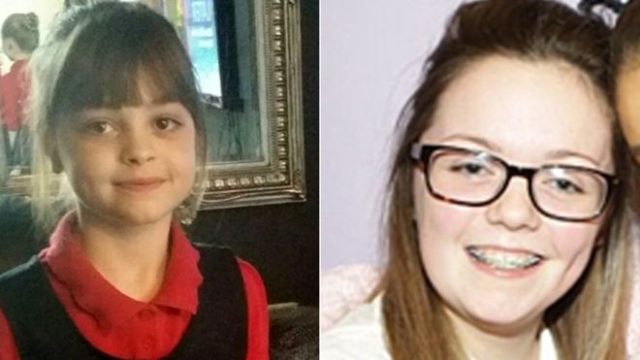






So so sad. Love is always greater than hate